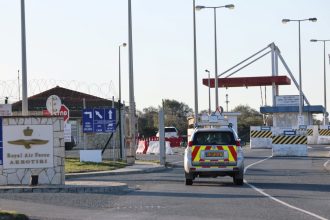GAZA CITY, July 13 — As Gaza enters yet another day of grief and devastation, efforts to secure a much-needed ceasefire hang by a thread. Talks meant to end nearly 21 months of brutal conflict are faltering, with both Hamas and Israel blaming each other for the deadlock.
In Qatar, where indirect negotiations are being held, a Palestinian source revealed that Israel’s insistence on maintaining military troops in parts of Gaza is stalling an agreement that could bring a 60-day pause to the violence.
On the other side, a senior Israeli political figure—speaking under anonymity—accused Hamas of being rigid and undermining the potential for peace.
But while political figures argue behind closed doors, the human toll on the ground grows unbearable. Gaza’s civil defense agency reported at least 38 more lives lost on Saturday, including children and their mother who were killed in an overnight airstrike. Bassam Hamdan, a witness to the tragedy, described the horror: “We found them torn to pieces, their remains scattered.”
Hospitals are overwhelmed. In Khan Yunis, bodies wrapped in plastic were brought to Nasser Hospital, while in Rafah, injured civilians were transported however possible—on stretchers, donkey carts, or in arms.
Meanwhile, in Tel Aviv, thousands rallied in the streets, urging their government to make a deal for the release of hostages. Among them was Eli Sharabi, who was freed earlier this year. “The window of opportunity… is open now and it won’t be for long,” he pleaded.
Despite both sides suggesting that a hostage release could accompany a ceasefire, major obstacles remain. A Palestinian source said Hamas is firm in its demand for full Israeli troop withdrawal, something Israel is unwilling to concede. According to leaked information, Israel wants to maintain control over more than 40% of Gaza, displacing many into areas near Rafah, a move Hamas claims would isolate communities and restrict movement.
Mediators have asked both parties to pause until the arrival of U.S. special envoy Steve Witkoff in Qatar.
Israeli officials argue it is Hamas who is refusing to compromise, accusing the group of trying to derail the process entirely. “Israel has shown flexibility. Hamas remains unmoved,” an official told AFP.
The stakes are heartbreakingly high. The Hamas attacks on October 7, 2023, killed at least 1,219 people in Israel, mostly civilians. Of the 251 hostages taken that day, 49 are still captive, 27 of whom are presumed dead. In response, Israeli military actions have claimed the lives of at least 57,882 Palestinians—many of them children and women—according to Gaza’s health ministry.
The Israeli military confirmed it struck approximately 250 targets in the last 48 hours, including 35 in Beit Hanoun, intensifying fears of more destruction ahead.
While two previous ceasefires led to the release of over 100 hostages and hundreds of Palestinian prisoners, this round of talks remains fragile. A glimmer of hope exists, with some progress reportedly made on prisoner exchanges and humanitarian aid, but it is shrouded in uncertainty.
Prime Minister Netanyahu remains adamant: disarming Hamas is non-negotiable for any future peace.
For the people of Gaza and Israel, however, the cost of continued warfare is already too high. Every day lost in negotiation is another day of bloodshed, heartbreak, and shattered lives.








